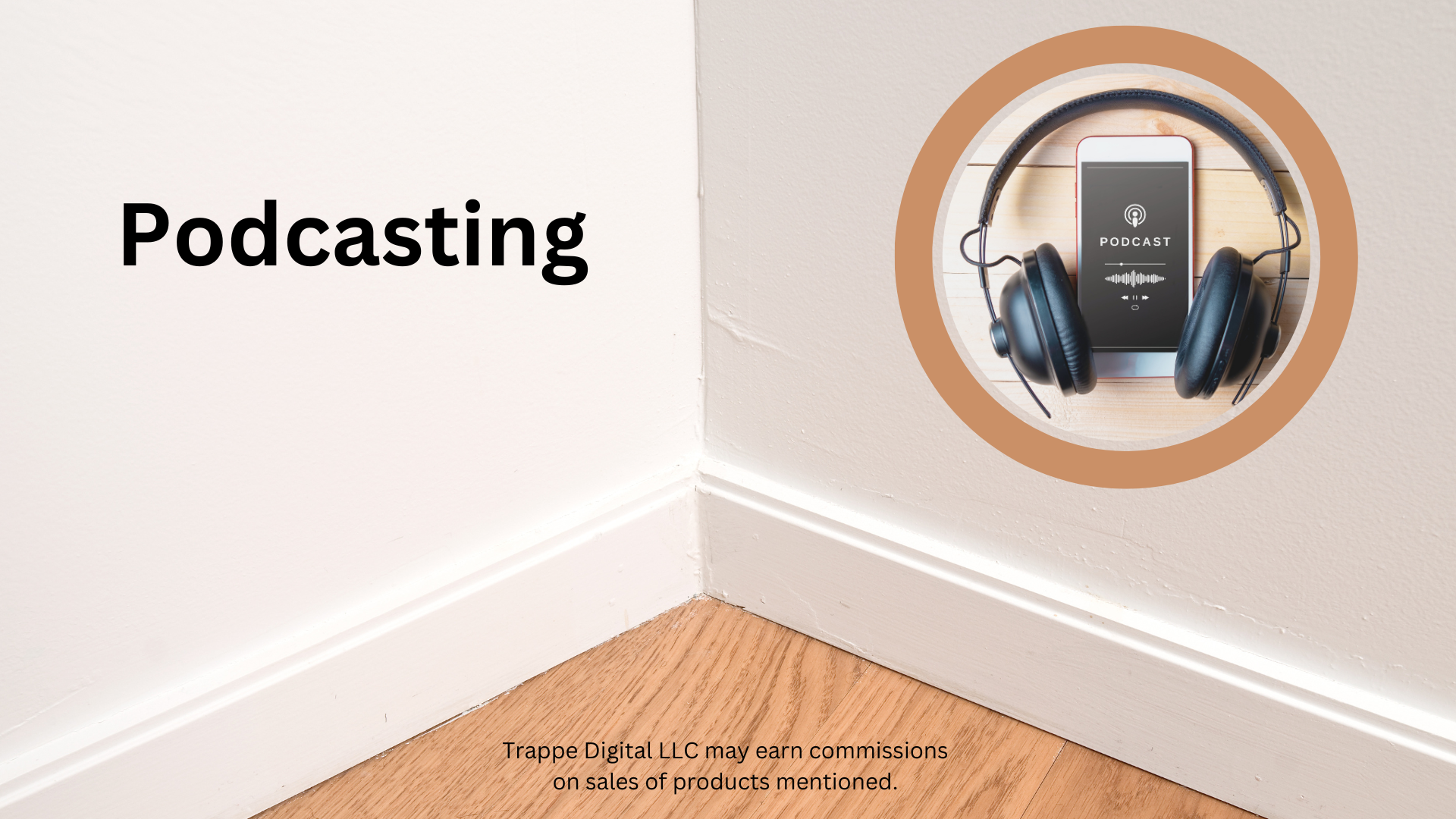Trappe Digital LLC may earn commission from product clicks and purchases. Rest assured, opinions are mine or of the article’s author.
Podcasters think about many things when getting ready for an episode, but how about making our voice sound better when recording? Does that make the list? Certainly, the list is long already:
- Is it a good topic for the show?
- What questions will I ask?
- How is my lighting?
- Is my microphone working?
- I hope the internet will stay strong
- Do I need makeup for my bald head?
- Etc.
“I don’t think podcasters are thinking about their voice while getting ready for a podcast, and they should be,” said voiceover coach Daniel Friedman on an episode of “The Business Storytelling Show.” “We are all public speakers nowadays. If you want to appeal to people on a logical level, you have to appeal to them on an emotional level. That’s how our voice works, and that’s how our brain works.”
I’m the first to admit that I also didn’t use to spend as much time on making my voice sound better than I should have. But there are some steps all of us podcasters can take.
Read next: (How-to-tips) Using short-form audio in your content strategy
Focus on breathing
I noticed this a few years ago. Every time I spoke publicly, I had to cough first. Weird. Am I nervous? I didn’t think I was, but maybe that was it, I reasoned. Daniel, however, said that my breathing could be a problem.
“If you breathe properly through your nose, you may not have to do that cough,” he said. “Breathing through your mouth dries out your vocal cords and makes you want to cough.”
Focusing on breathing can be done subtly. For example, you don’t need a deep breath right before you speak on a podcast every time.
Read next: Media interviews: Why to repeat the question asked to get better content
Hydrate
Drinking enough water the day before a recording, the day of, and even during breaks is also essential and can help ensure the vocal cords don’t dry out. For example, I often take a sip of water while my podcast guest talks, and I’m off-screen.
Work on the things that bother you (or the audience)
There are things many of us don’t like about our voices. Sometimes we may even get feedback from the audience. Evaluate the feedback for what it’s worse. But I did get feedback before that boiled down to “too drill sergeanty.” They had a point, and I could work on softening my directness and delivery.
“Things that people don’t like or that bother voices are things we can tweak and train – for example, if you feel you’re not sounding confident enough,” Daniel said.
Read next: Why research is important [Content Strategy]
Listen to your episodes
Listen to episodes to see what you can improve. I know it’s hard to listen to ourselves and even the topic we just discussed moments ago. One way I get around that is to stagger release dates for podcasts. For example, Daniel and I recorded this podcast episode as part of a livestream many weeks ago. When the podcast publishes, it almost feels like listening to new content. Just adding that time delay helps me make the listening easier.
Some common things that I catch and often work on include:
- Talking too loudly into the microphone
- Going off-topic
- Rambling
- The need to soften up my tone
I know these things, but listening again helps me see progress or if there’s been less progress than expected to work on things.
Get a voice coach
You might consider getting a voice coach like Daniel to work on your voice with the help of an expert.
Have the right equipment
It’s hard to sound good when the technical setup isn’t there. Make sure you have a good microphone, it’s placed in the right place, you are the right amount of space away from it, and it’s the microphone the recording platform is using. I found it a good practice to check the settings before recording a podcast.
Voice-over expert Jodi Krangle shared some great tips on this episode of her podcast.
Having your voice sound the best can improve the show, build a connection with the audience and make the show that much more successful. The list of things podcasters should do before a successful episode certainly keeps getting longer, but given the importance of sound, adding some of these steps certainly makes sense.

